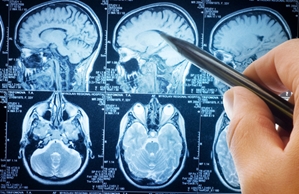Traumatic brain injuries rob veterans of their memories and affect their ability to create new memories every year. Moreover, TBIs present a widespread problem in the civilian community that diminishes the quality of life for hundreds of thousands, according to the Defense Advanced Research Projects Agency. To help solve the problem in both communities, DARPA recently announced that several research grants would be awarded, helping fund efforts to develop brain implant technologies.
Repairing the brain with hardware
According to a Military Times report, the research sector of the Pentagon is looking into devices that may reconnect areas of a damaged brain that could lead to retrieval of lost memories. The imagined technology would be a wireless neuroprosthetic. Where pharmaceutical remedies and therapies have not made dramatic breakthroughs in TBI and memory dysfunctions, this innovative technology could help pave the way for newer treatments. According to a Military.com report, DARPA claims there are no current effective treatments for the long-term effects of TBI on memory, but they are eager to change that.
"We're trying to change the game on the options available to our military members when it comes to traumatic brain injuries, and come up with new therapies," said Justin Sanchez, DARPA's Restoring Active Memory program manager, according to the Military Times. "We need new hardware, new devices that can interface with the brain, and we need to develop new computational models that allow clinicians to interface with the brain."
This project is not new to DARPA either. About a month before announcing the research grants, Military.com published a report about the Pentagon's Restoring Active Memory project. Aiming to restore memories in injured patients as well as treat people with mental health disorders, such as depression and Parkinson's disease, the RAM project is just one of the developments benefiting from $50 million of funding for research this year, allocated by DARPA.
Where the money is going
According to the Military Times, the University of California, Los Angeles and the University of Pennsylvania will each receive funding to develop electronic interfaces that can help recognize memory deficits and improve brain function. The Lawrence Livermore National Laboratory in California will also receive funds.
The amounts for each institution are:
- UPenn: up to $22.5 million over four years
- UCLA: up to $15 million
- Lawrence Livermore National Laboratory in California: up to $2.5 million
The effects of TBI and memory loss are widespread in the U.S. Since 2000, DARPA reports that over 270,000 servicemembers have sustained TBI injuries, which often results in difficulty retrieving memories and affects the ability to form new memories. Adding to those numbers, DARPA estimates that 1.7 million American civilians have been affected by TBI injuries. Scientists and researchers face significant biological and technological challenges in producing a piece of neuroprosthetic hardware, but plans to develop and test initiatives such as RAM and other projects are well underway. Veterans and many others stand to benefit from future innovations as well. Military.com reported that the benefits of a neuroprosthetic device could also help treat and restore the memories of patients with Alzheimer's disease.

